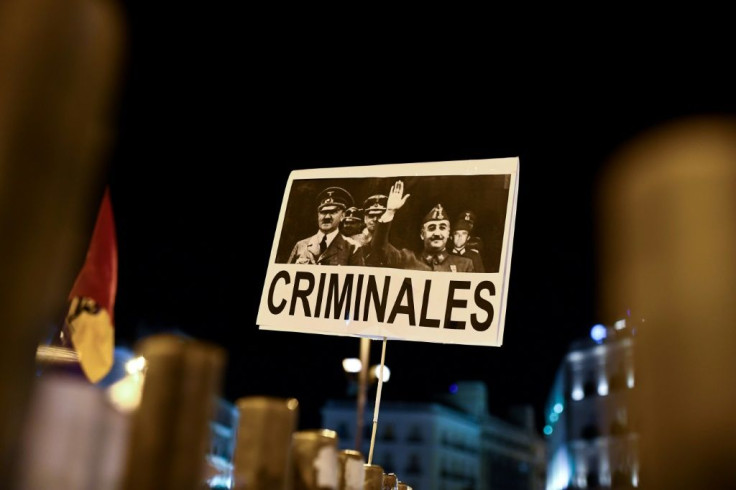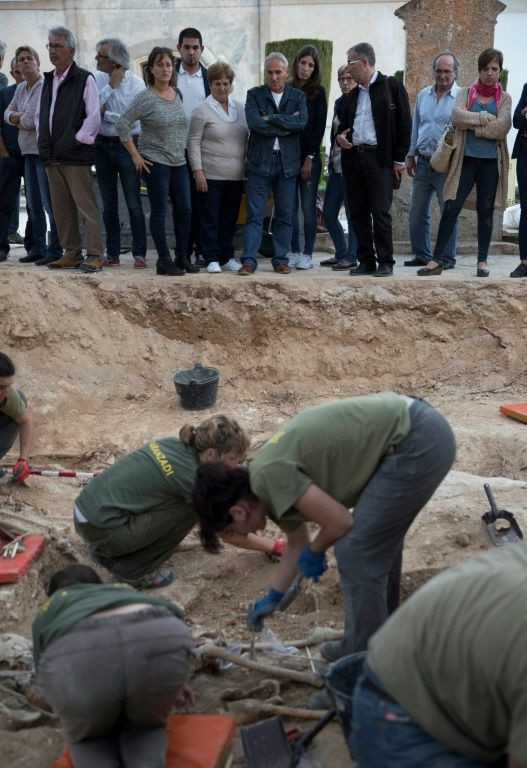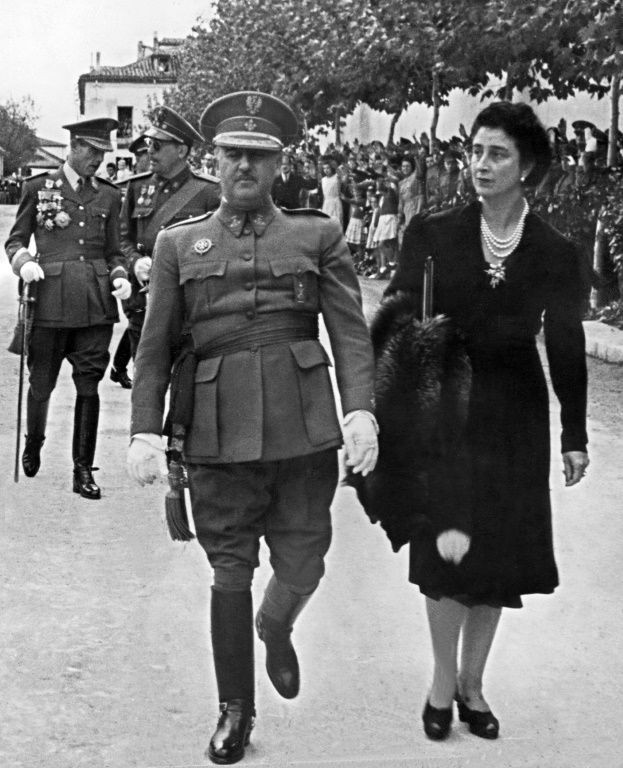Spain Wants To Ramp Up Search For Franco Victims In Mass Graves
Nearly a year after relocating Franco's remains, Spain's leftist government approved a draft bill Tuesday which will finance the exhumation of victims of his dictatorship and the country's 1936-39 civil war that preceded it from hundreds of mass graves, as part of its efforts to heal the wounds of the past.
Campaigners estimate more than 100,000 victims from the war and its aftermath remain buried in unmarked graves across Spain -- a figure, according to Amnesty International, only exceeded by Cambodia.
The so-called "Law on Democratic Memory" which Prime Minister Pedro Sanchez's cabinet approved Tuesday will make unearthing the mass graves a "state responsibility".
The bill, which still has to be approved by parliament, will also create a DNA database to help identify remains found in the mass graves, create a map of the mass graves and prevent publicly-funded institutions from glorifying the dictatorship.

Francisco Franco assumed power after the civil war in which his Nationalists defeated Republicans, leaving the country in ruins and mourning hundreds of thousands of dead.
While Franco's regime honoured its own dead, it left its opponents buried in unmarked graves scattered across the country.
The passage of time, and the lack of records about the executions, has made both finding and identifying victims difficult.

The government will set aside 750,000 euros ($890,000) to finance the bill in 2020, with 60 percent earmarked for the search for the missing.
"Memory, justice and reparation must be state matters. Today we take another step in recognising the victims of the Civil War and the dictatorship with the Law on Democratic Memory. Today we close the wounds a little bit more and can look at the past with greater dignity," Sanchez tweeted.
Under an earlier historical memory law passed by a previous socialist government in 2007, the state simply offered support to help families trace and exhume relatives buried in unmarked graves.

But that support was withdrawn after the conservative Popular Party came to power in 2011, claiming it needlessly opened old wounds.
Sanchez has made the rehabilitation of the victims of the era of dictator Francisco Franco one of his priorities since coming to power in 2018.
In October 2019 he had Franco's remains removed from a vast basilica in the Valley of the Fallen near Madrid where he was buried when he died in 1975, and transferred to a discreet family plot in El Pardo cemetery on the outskirts of the Spanish capital.
The bill approved Tuesday calls for Franco's former mausoleum at the Valley of the Fallen to be turned into an educational site about the war and the dictatorship.
It will also annul the criminal convictions of opponents of the dictatorship and appoint a prosecutor who will probe human rights abuses during the civil war and dictatorship.
Previous attempts to bring Franco-era officials to justice in Spain have been blocked by the amnesty agreement signed by political leaders after Franco's death.
The agreement was seen as essential to avoid a spiral of score-settling as they tried to unite the country and steer it towards democracy.
Spanish authorities still invoke the amnesty law in refusing to investigate alleged atrocities during the Franco era, despite demands by the United Nations that it be scrapped.
The right accuse Sanchez of using the draft bill to distract attention away from his poor handling of the coronavirus pandemic, which has claimed over 30,000 lives in Spain, one of the world's highest tolls.
"Every time the government has problems, it brings out the scarecrow of Franco," said the spokesman for the main opposition conservative Popular Party in the Senate, Javier Maroto





















